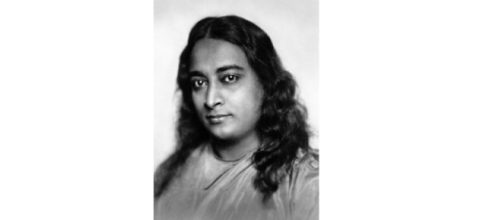The documentary "Awake: The Life of Yogananda" reveals a story of a spiritual teacher who brought yoga and meditation to the West, inspiring millions. The movie appeared to be quite impressive, explaining a major role of Yogi Yogananda in the history of spiritual teaching and his impact on the United States and the rest of the world.
Yoga and meditation in the United States
Indian yogi and guru Paramahansa Yogananda came to the United States in 1920 and introduced meditation teachings and Kriya Yoga. He changed people's perceptions on materialistic aspects of human existence and established a new mindset on one's personal relationship with God.
Yoga has since been practiced all over the United States, bringing together millions of people.
This documentary may be challenging to comprehend due to its spiritual message that contradicts some of the socially-accepted norms and beliefs of the West. Nonetheless, "Awake: The Life of Yogananda" brings a different perspective. As with most documentaries, this movie has tons of deep information that requires one plenty of time to analyze, associate with previous life experiences, and apply to the current values, ideas, and everyday life.
The story of Yogananda shows that he didn’t turn his back on his life work even when the situation seemed hopeless. At first, Paramahansa had huge success in teaching American people a new mindset, regardless of their religious views.
Soon after, Yogananda faced defamation by those who viewed him negatively, affecting his reputation and hard work.
Despite all the obstacles along the yogi’s path, he didn’t give up. He placed greater effort into helping people actualize themselves and find their own way to enlightenment. The film reveals the importance of genuinely exploring the world, as well as being aware of our own personality traits, feelings, and emotions. The film concludes that humans can choose their own path and to never let failure prevent people from achieving their biggest goals.
Exploring spirituality
The other big question that this movie raises is spirituality. Yogananda’s teachings claim that meditation is key to finding peace within the mind along with finding what actually matters in each individual's life.
Meditation not only helps to clear the mind and take a break from the everyday hustle but also allows people to let go of past worries and negative experiences, ceasing future anticipated frustrations. Moreover, meditation gives people a realization of how powerful and crucial concentration is.
Once we become aware of our distractions and that energy is redirected, great accomplishments can be achieved. In this case, an individual becomes fully focused and present with the interaction, performing at her/his best due to the lack of arousing distractions. Simply put, our mind starts wandering less. When there are less distractions we get a miraculous ability to be precisely focused, dissect our brain patterns, discover own values, and find out what is actually important for each of us.
I personally believe that our existence and the world in which we live is a miracle that we need to recognize and of which we need to be aware. There is a beauty and uniqueness in every single event, activity, and interaction. We live in a materialistic age that puts enormous emphasis on work, money, belongings, and minor everyday struggles that we think are preventing us from being happy. We often forget to take a break, calm our minds, and enjoy the fact that everything is interconnected and pierced with the same energy, and working according to the same laws of attraction.
I think that one the biggest of Yogananda’s points is that like attracts like. By being genuine, thoughtful, kind, and loving, by accepting and being nonjudgmental about others and ourselves, we can access pure happiness and reach global unification.


